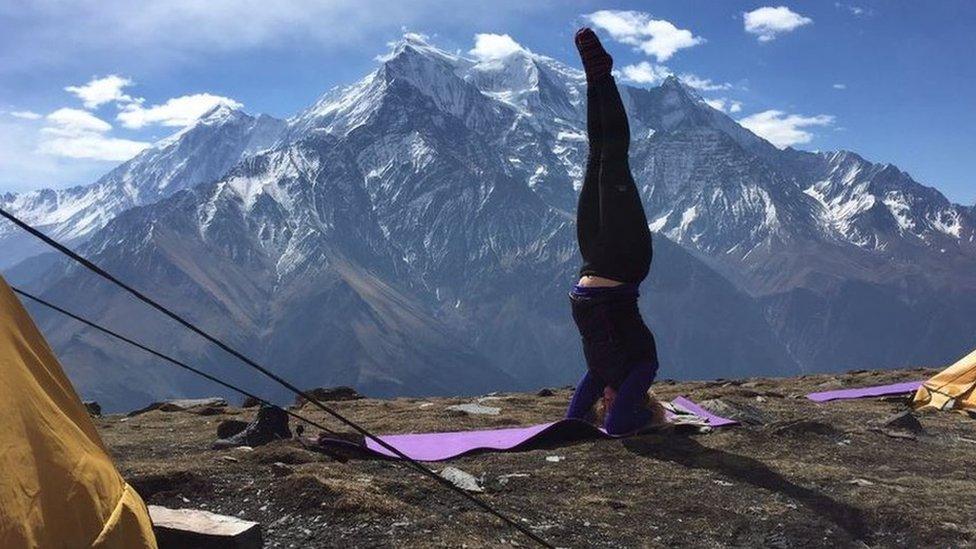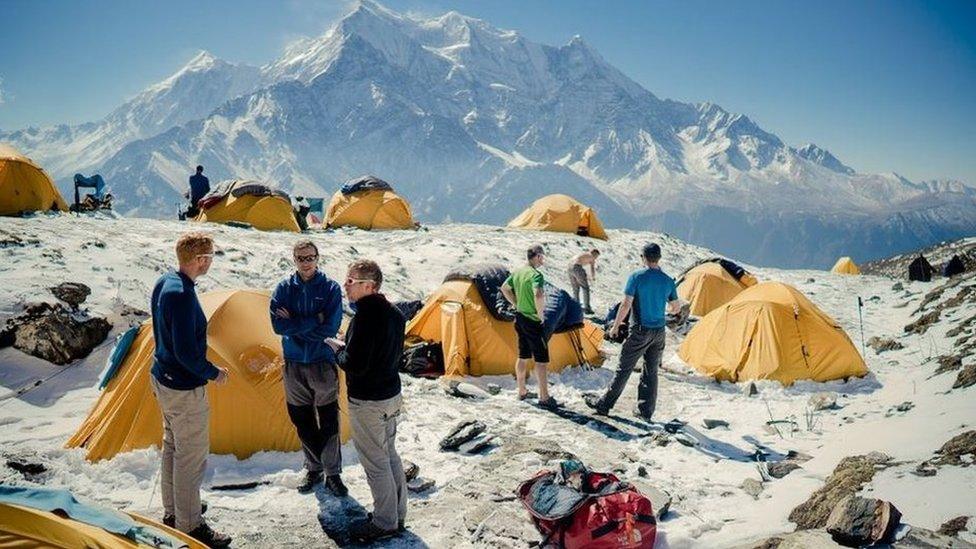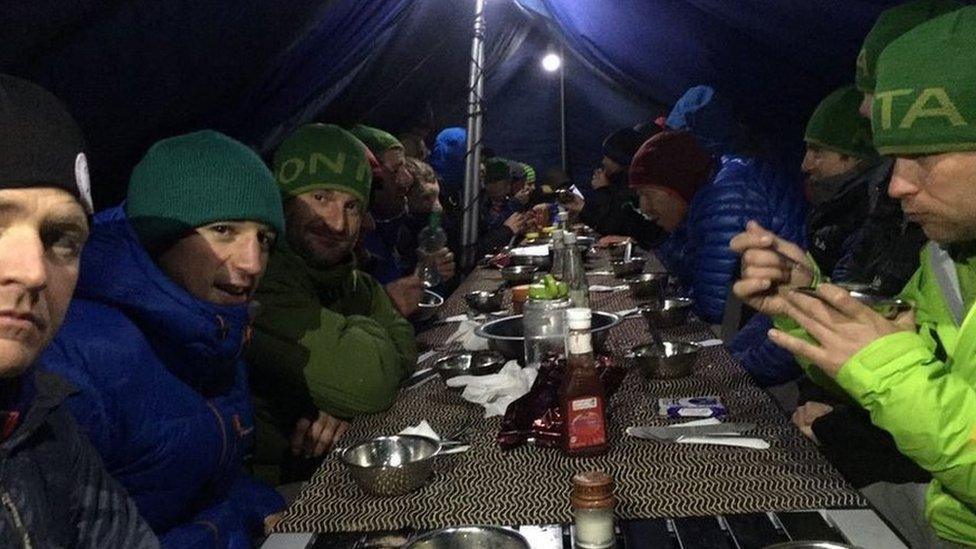British climbers attempt Dhaulagiri ascent without oxygen
- Published
Major Chris Wright, from Sheffield, explains what medical research the expedition team is involved in
Climbers are attempting to scale one of the world's highest mountains without oxygen for a study assessing the effects of altitude.
UK scientists will monitor the Himalayan peak Dhaulagiri's ascent via a chip implanted in each members' body.
Its summit is at 8,167m (26,794t). Beyond 8,000m (26,246ft) climbers enter the oxygen-starved realm known as the "death zone".
The Leeds Beckett University scientists are at base camp for the study.

One of the expedition members @LisRob3 tweeted this picture of the best way to relax at high altitude

Following six weeks of acclimatisation the team aim to make the summit around the 20 May
The two-inch chip device is implanted just above the heart of each member of the climbing team, who are all members of the military, for the study set up to help soldiers better prepare for fighting at high altitude.
The chip stores and uploads data of each heartbeat during the expedition by satellite link and is the first time the military has used such technology to look at altitude effects.
There have been many studies on how the body reacts to high altitude but none that show how heart rhythms change at extreme heights.

What's it like to climb into the 'death zone'?
Mountaineer Alan Hinkes, from North Yorkshire, was the first Briton to conquer the world's 14 highest peaks. He describes how it feels to climb above 8,000m.
At that altitude you need to be able to suffer because your body starts to shutdown and you are basically slowly dying.
There is no oxygen and temperatures on Dhaulagiri can plummet to -20C at summit, so it's really important that you acclimatise slowly.
You feel terrible, it's like suffering from the flu and having a hangover at the same time. Your appetite changes, you can't sleep and you have vivid dreams.
Hitting the summit can only be done on a handful of days - you can't do it if the jet stream is hitting the top because you will get blown off into the Indian Ocean.

Other trekking teams will join the expedition to carry out a number of medical studies.

The team take shelter for dinner as a blizzard hits
Expedition leader and Royal Navy Surgeon Commander Adrian Mellor, from Stokesely, North Yorkshire, said many casualties who fought in Afghanistan had to be rescued from mountains because of altitude sickness.
He said "As we fight less state-type warfare and more small terrorist groups, they're likely to be hiding in places where it's difficult to find them, which is likely to be rugged and mountainous terrain, so understanding more about the diagnosis and ways we avoid the deleterious effects of high altitude is very valuable to the military."
The expedition involving the British Army, Royal Navy and Royal Air Force, is expected to take up to two months to complete. The team's progress can be followed at @dhaulagiri2016, external